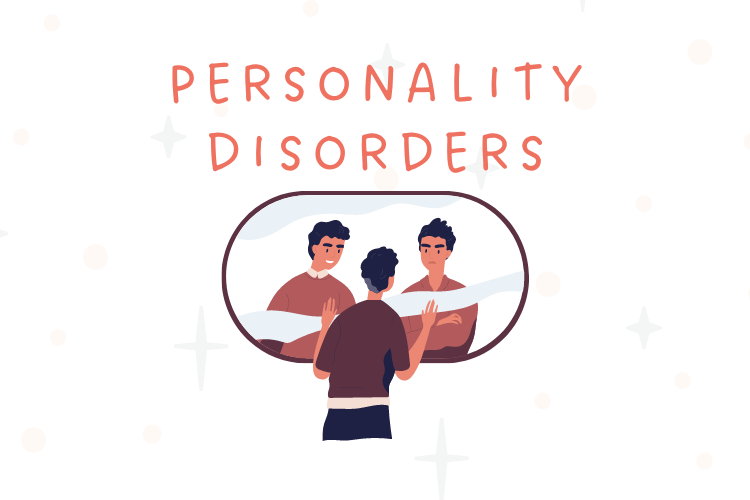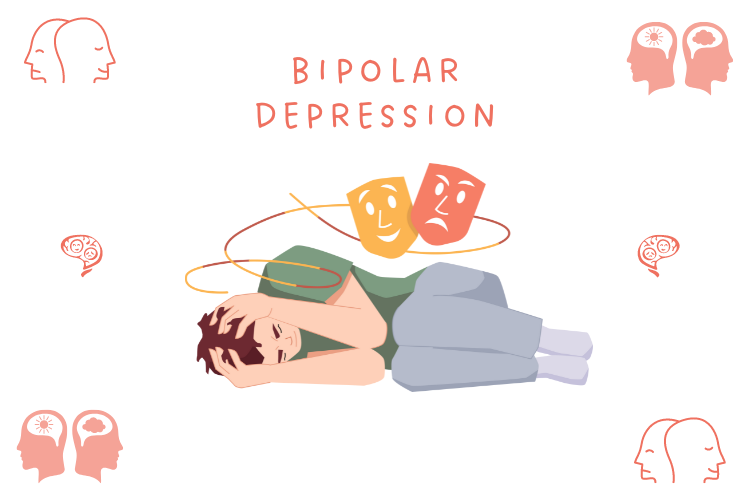Personality is the unique combination of thoughts, emotions, and behaviors that shape an individual's identity and interaction with the world. However, for some individuals, their personality traits and patterns become rigid and maladaptive, leading to difficulties in relationships, work, and daily life. These conditions are collectively known as personality disorders. In this blog, we will delve into the world of personality disorders, exploring their types, potential causes, symptoms, and the diagnostic process.
Types of Personality Disorders
The Diagnostic and Statistical Manual of Mental Disorders, Fifth Edition (DSM-5), classifies personality disorders into three clusters, each characterized by distinct patterns of behavior and thinking. The types are as follows:
Cluster A - Odd or Eccentric Behavior
Paranoid Personality Disorder: Characterized by a pervasive distrust and suspicion of others, interpreting motives as malevolent.
Schizoid Personality Disorder: Involves detachment from social relationships and a limited range of emotional expression.
Schizotypal Personality Disorder: Marked by eccentric beliefs, behaviors, and difficulties in forming close relationships.
Cluster B - Dramatic, Emotional, or Erratic Behavior:
Antisocial Personality Disorder: Exhibits a disregard for others' rights and feelings, along with a lack of remorse for harmful actions.
Borderline Personality Disorder: Features unstable emotions, self-image, and interpersonal relationships, often leading to impulsive behavior and self-harm.
Histrionic Personality Disorder: Involves attention-seeking behavior, excessive emotionality, and a strong need for approval.
Narcissistic Personality Disorder: Characterized by a grandiose sense of self-importance, a need for admiration, and a lack of empathy.
Cluster C - Anxious or Fearful Behavior:
Avoidant Personality Disorder Involves feelings of inadequacy, extreme sensitivity to rejection, and avoidance of social interactions.
Dependent Personality Disorder: Characterized by a pervasive need for others' support and an inability to make decisions independently.
Obsessive-Compulsive Personality Disorder (OCPD): Features a preoccupation with orderliness, perfectionism, and excessive attention to details.
Causes of Personality Disorders
The exact causes of personality disorders are not fully understood, but several factors may contribute to their development:
Genetics : There is evidence to suggest that genetics plays a role in the predisposition to certain personality traits and disorders.
Childhood Experiences: Early life experiences, such as trauma, neglect, or inconsistent parenting, may contribute to the development of maladaptive personality patterns.
Neurobiological Factors: Some research suggests that certain personality disorders may be associated with abnormalities in brain structure and function.
Symptoms of Personality Disorders
The symptoms of personality disorders can vary widely depending on the specific type but generally involve enduring patterns of behavior that cause significant distress or impair functioning. Common symptoms include:
1. Difficulty forming and maintaining healthy relationships
2. Emotional instability & Impulsivity
3. Unstable self-image
4. Pervasive mistrust of others
5. Fear of abandonment
6. Difficulty managing anger or frustration
7. Obsessive need for order or control
8. Excessive need for attention or approval
9. Diagnosis of Personality Disorders
Diagnosing personality disorders is a complex process that requires a comprehensive evaluation by a mental health professional. The diagnostic criteria outlined in the DSM-5 (Diagnostic and Statistical Manual of Mental Disorders) are used as a guideline to assess the individual's patterns of behavior, thoughts, and emotions.
The diagnostic process may include interviews with the individual and, if available, collateral information from family members or close friends. Additionally, clinicians may use standardized personality assessment tools to aid in the diagnosis.
Conclusion
Personality disorders can significantly impact an individual's life, relationships, and overall well-being. Understanding the different types, potential causes, and symptoms of personality disorders is crucial for early identification and intervention. Seeking professional help from a qualified mental health provider can lead to appropriate treatment and support, helping individuals with personality disorders navigate towards a healthier and more fulfilling life.



